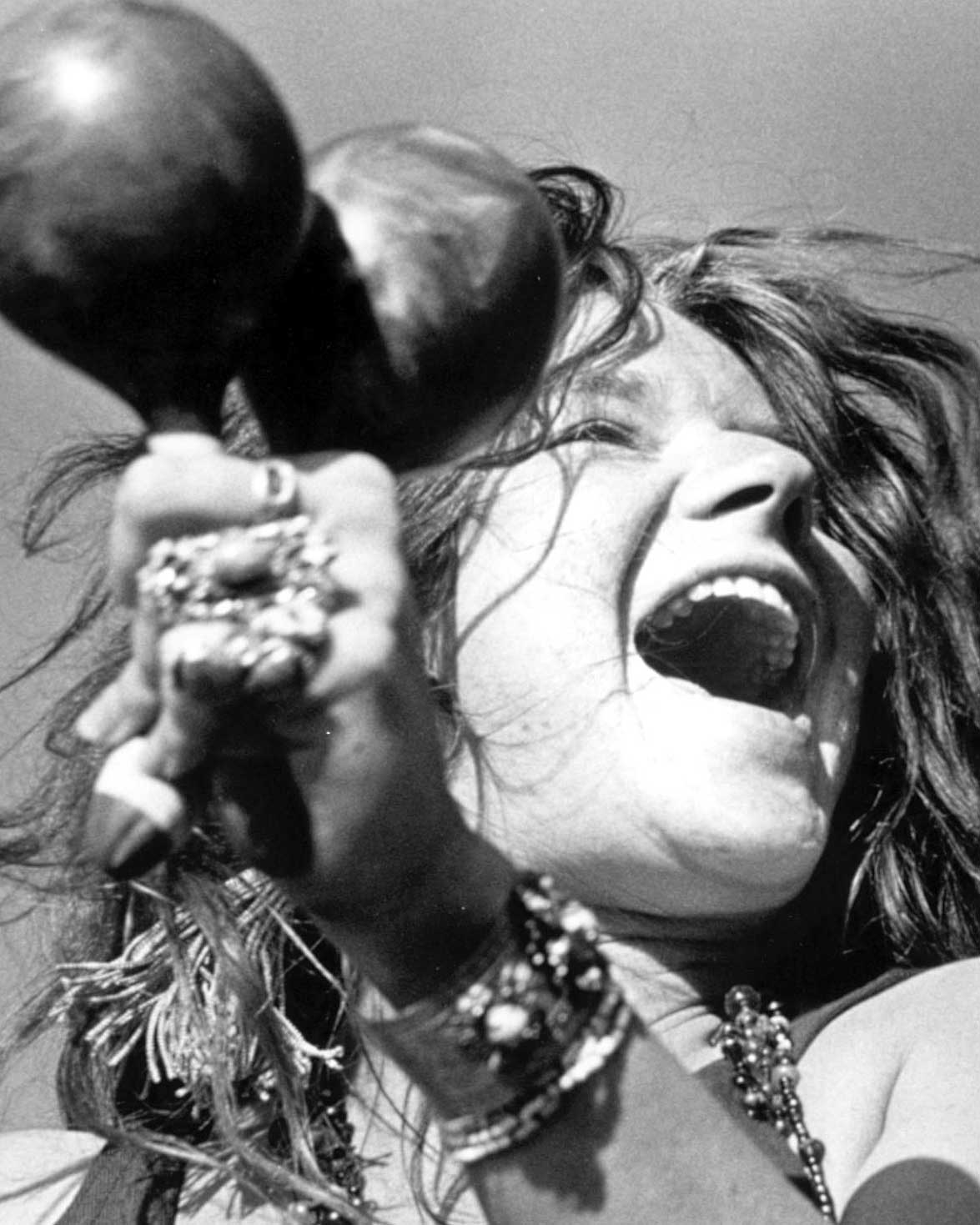https://projects.latimes.com/
~~ recommended by emil karpo ~~

Listen to Janis Joplin sing “Piece of My Heart” or “Cry Baby” and it’s clear in an instant that this wasn’t a singer looking for radio airplay or pop singles chart success: This was a human being in pain, trying to exorcise that pain through her music.
https://www.youtube.com/watch?
v=lv9KW6TpcPg
Joplin took the blues that had largely been the domain of black singers before her — Billie Holiday, Bessie Smith, Etta James — hot-welded it onto the grill of a histrionic rock band and scorched her way across the anything-goes American pop culture scene of the late 1960s. In a couple of short years between her emergence with the San Francisco-based band Big Brother & the Holding Company and her death of a heroin overdose in 1970, Joplin burnished her voice, her heart and her spirit onto the world’s consciousness so deeply that more than four decades later her name and music remain as evocative, if not more, than they were originally.
“Without trying, Janis became an icon,” Melissa Etheridge said while inducting Joplin into the Rock and Roll Hall of Fame in 1995. “She was the only goddess in a sea of rock gods.”
Joplin was a dynamic a performer and as wild off the stage as Mick Jagger, Jim Morrison or the rest of those rock gods of the time, often channeling both her over-the-top joy and apparently bottomless anguish into her performances.
“I never saw anyone who put as much of themselves out there on stage as Janis did,” The Times former pop music critic Robert Hilburn said recently about first encountering her at the Hollywood Bowl in the late ‘60s.
Janis Lyn Joplin was born in Port Arthur, Texas, and in her youth was drawn to the blues that was so popular among white teens in the 1950s and early ‘60s. At the suggestion of a friend, she visited San Francisco and soon connected with Big Brother, which had adopted the experimental blues-rock that was swirling in the Bay Area and other regions.
“All of a sudden, someone threw me in front of this rock 'n' roll band,” Joplin once said of her introduction to Big Brother. “And I decided then and there that was it. I never wanted to do anything else.”
https://www.youtube.com/watch?
v=r5If816MhoU They also turned in one of the most highly regarded performances of the Monterey Pop Festival in 1967, cementing her reputation as a significant new voice in rock music. Their association yielded a No. 1 album “Cheap Thrills” in 1968, which included the career-defining Top 20 single “Piece of My Heart,” later inducted into the Grammy Hall of Fame and Rock and Roll Hall of Fame.
Still, it was after only two albums that Joplin left for a solo career that got rolling with “I Got Dem O’ Kozmic Blues Again Mama” in 1969. Anyone who spent any time with her could see the excesses — of alcohol, drugs and sex — to which she turned, often out of pain.
She had nearly completed the follow-up to the “Kozmic Blues” album when she died of an overdose in a Hollywood hotel room at 27. The album, released posthumously, used her nickname, “Pearl,” as its title, and shot to No. 1 in 1971, and remained at the top of the Billboard album chart for nine weeks, helped along by the strength of her recording of Kris Kristofferson’s song “Me and Bobby McGee,” and two subsequent singles, “Cry Baby” and “Get It While You Can.”
Rock critic Lillian Roxon once wrote that Joplin “perfectly expressed the feelings and yearnings of the girls of the electric generation — to be all woman, yet equal with men; to be free, yet a slave to real love; to [reject] every outdated convention, and yet get back to the basics of life.”
No comments:
Post a Comment